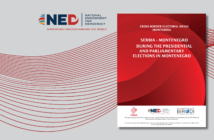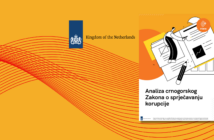According to the Law on Free Access to Information, the authorities may declare secret information that represent a tax secret.
This provision was proposed and adopted by the MPs of the ruling party, who amended the Law on Free Access to Information in mid-2017 while the entire opposition boycotted the work of the Parliament of Montenegro.
The aim of this publication is to indicate how this amendment to the Law has affected the practice and what information is now available to the public.
First part of the publication provides a brief overview of the legal framework governing tax secret.
Second part contains case studies related to access to information on calculation of tax liabilities, tax payment, tax arrears and reprogramming of tax debts of companies.
Third part focuses on taxes of public officials and related persons, while the fourth one deals with inspection audit.
The case studies given in this publication are based on the administrative and judicial proceedings of MANS.
Following the amendments to the law, the practice of institutions changed, thus, many data of data of public interest were declared tax secrets.
It was only after years-long legal proceedings that the courts finally passed first court judgments, which to some extent removed the obstacles imposed by the amendments to the law.
According to those judgments, data on tax arrears, as well as reprogramming of tax debts of companies, should be available to the public.
The courts have taken an encouraging, though not decisive position that data on paid taxes should be made public. At the same time, the courts assessed that the data on calculated taxes that companies are obliged to pay represent a tax secret.
Income tax returns submitted by public officials cannot be secret, and these data are public even for the related persons who live in the same household with public officials.
Following the amendments to the law, the practice changed, thus the data on taxpayer audit were hidden from the public.
- Complete publication download HERE (PDF)



